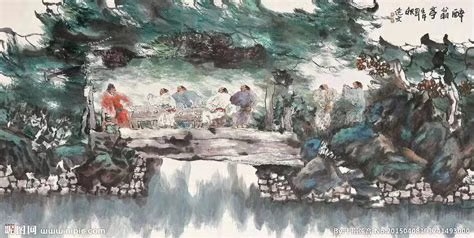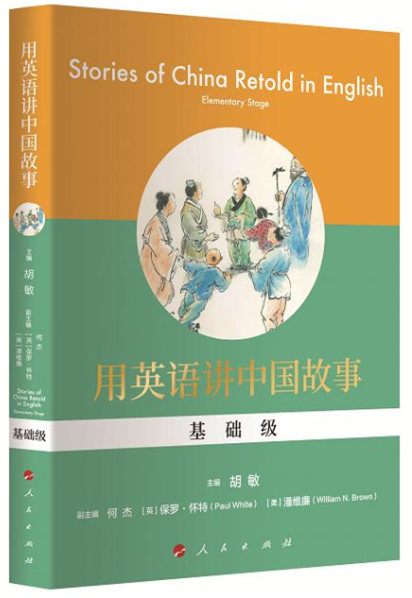从战国时期的孟子开始,“与民同乐”成为一种重要的政治思想。这种思想在宋代,被一篇千古流传的文章《醉翁亭记》发扬光大了。
《醉翁亭记》的作者是宋代的政治家、文学家欧阳修。当时,他遭遇了巨大的政治挫折被贬到滁州。但是,消沉的情绪没有持续影响他。他坚信为官一任应当造福一方百姓。
欧阳修在滁州发展生产,使当地人过上了和平安定的生活。这里物产丰富,人民安乐,而且又有一片令人陶醉的山水,令欧阳修感到无比快慰。
滁州四面环山,山里的树林和峡谷十分壮美。其中有一座琅琊山尤为突出。山里边有小溪流经,顺着山路上去可以看到一座亭子。这便是醉翁亭。欧阳修常常与朋友在此相聚,宴请宾客时喝一点酒就醉了,加上他又是友人中年纪的,因此自称“醉翁”,醉翁亭也是由他命名的。

Since its proposal by Mencius (孟子)in the Warring States Period (475-221 BC),"sharing happiness with the people" has been an important philosophy of governance. It was further widely known because of the classical essay, Record of the Old Tppler's Pavilion,in the Song Dynasty (960-1279).
This piece was written by Ouyang Xiu ( 欧阳修 ), a famous Song statesman and literary scholar, during his demotion and exile to Chuzhou after a major setback in his political career. Rather than fall subject to depression, Ouyang Xiu adhered to his principle of putting the people's benefit as his top priority and serving wherever he was needed.
In Chuzhou he promoted agricultural production, and brought peace and stability to this area. As well as the affluent resources and happy local people, the enchanting natural landscape gave Ouyang Xiu the utmost comfort and pleasure.
Enclosed by mountains, Chuzhou was blessed with magnificent forests and canyons. Among them, Langya Mountain was extremely impressive, with a stream running down it and a pathway upward to a pavilion, which was a rendezvous for Ouyang Xiu and his friends. Ouyang Xiu, usually the oldest and easily intoxicated while entertaining guests, called himself the "Old Tippler" ---hence the pavilion's name.

用英语讲中国故事(基础级)零售价格:79元/本
大课堂视频课程:季99元(含6个故事共36节课)
如果大家有需要购买用英语讲中国故事的书籍或者学习视频,可以点击在线咨询进行购买。
新航道重庆学校官网:cq.xhd.cn
新航道重庆学校电话:400-185-9090

